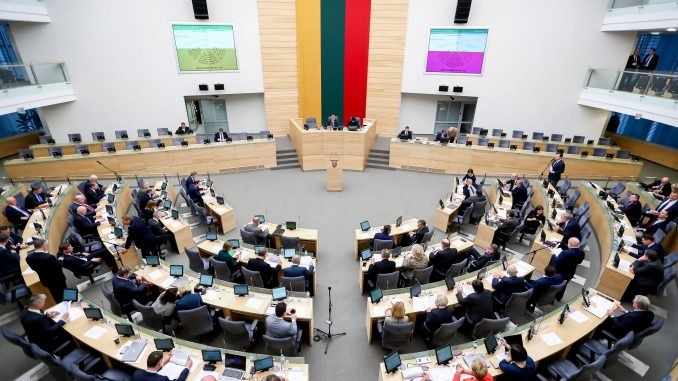
During the probe, which lasted more than six months, NSGK investigated attempts by some businesses to unlawfully influence politicians and heads and employees of state-owned companies and public authorities, as well as political party funding mechanisms and efforts by Russia‘s Rosatom to play a role in sectors of importance to Lithuania’s national security.
According to the committee, activities by Russia’s state nuclear energy corporation Rosatom are based on exerting unlawful influence on authorities and its goal is to dominate the region’s energy sector, which is incompatible with Lithuania’s efforts to secure energy independence from Russia.
Rosatom’s plans to create a consortium with Lithuanian companies and seek decisions and projects favorable to the Russian group are regarded as aimed at changing the geopolitical direction of Lithuania, which poses a threat to national security.
NSGK also states in its findings that activities by MG Baltic, one of Lithuania’s largest business groups, threaten the structure of the state as political decisions are made de facto by groups of individuals that are not accountable to anyone. Political influence has become a commodity. The group uses its media organizations as a tool of pressure and manipulation to protect its interests.
According to the findings, MG Baltic actively interfered in political processes by exerting influence on members of political parties represented in the Seimas and in Vilnius’ local authority, and on ministers, civil servants and company managers. The group collected confidential or discrediting materials on politicians and officials with the aim of bribing, influencing and blackmailing them.
The committee says that Rosatom’s interests in the Ignalina plant’s decommissioning process match those of MG Baltic. Mitnija, a MG Baltic company, would bag long-term building projects and Rosatom could control the closure process.
It says that MG Baltic’s top executives enacted a political scenario aimed at creating a new, Liberal party meeting the group’s interests. In less than 10 years after the establishment of the Lithuanian Liberal Movement, a political party closely associated with its top executives, MG Baltic became Lithuania’s most influential business groups.
According to the findings, Vilniaus Prekyba, another major business group, in 2006 to 2007 sought to carry out the LEO LT project and thus take control of Lithuania’s key energy sector companies.
The committee says that Mitnija and its partner, Kauno Tiltai, were awarded contracts worth more than a billion litas (EUR 300 mln) by Lietuvos Geležinkeliai (Lithuanian Railways) over a period of several years and proposes to ask the Prosecutor General’s Office to look at whether these deals were legitimate.
It also proposes, among other things, to ask the Seimas Energy Commission to assess what damage the Lithuanian state has or could have suffered as a result of LEO LT activities and to look at ways of having the damage compensated for.
The NSGK chairman has said that the state could recover an estimated 1.5 billion euros in damage caused by the non-transparent deals.

Be the first to comment